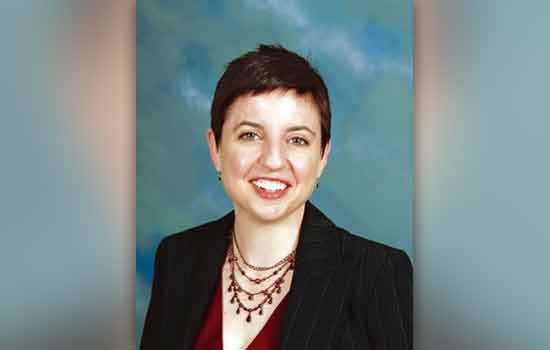Digital media expert to speak May 8
Kathleen Fitzpatrick to discuss changes in literature, scholarship due to emerging communication technologies
Kathleen Fitzpatrick, Director of Scholarly Communication at the Modern Language Association and visiting research professor of English at New York University, is the next speaker for RIT’s lecture series “Where Text and Code Collide: The Digital Humanities Speaker Series” on May 8.
Rochester Institute of Technology’s “Where Text and Code Collide: Digital Humanities Distinguished Speaker Series” continues with a talk by Kathleen Fitzpatrick, director of Scholarly Communication at the Modern Language Association and visiting research professor of English at New York University, at 8 p.m. May 8 in the Chester F. Carlson Center for Imaging Science auditorium. She will present “The History of the Future of the Book.” A book signing immediately follows.
Fitzpatrick, who specializes in digital media and the changes in literature and scholarship resulting from the development of networked communication technologies, is the author of Planned Obsolescence: Publishing, Technology, and the Future of the Academy and The Anxiety of Obsolescence: The American Novel in the Age of Television. She is also co-founder of the digital scholarly network MediaCommons, a community network promoting exploration of new forms of publishing.
“Fitzpatrick asks us to think about the profound changes in print-based work to which we are accustomed and to value digital projects in ways they are meant to be experienced,” said Lisa Hermsen, associate professor and chair of RIT’s English department.
Fitzpatrick has published articles and notes in journals including the Journal of Electronic Publishing, PMLA, Contemporary Literature and Cinema Journal, and has presented papers at conferences around the world. She is a member of the board of directors for the Council on Library and Information Resources; serves on the advisory boards for the Open Library of the Humanities, Open Annotation Collaboration, and Digital Humanities Series for the University of Michigan Press; and is an executive committee member for the Association for Computers and the Humanities.
The presentation—free and open to the public—is sponsored by the RIT Project for the Digital Humanities, College of Liberal Arts and the Gannett Endowment for the Humanities.







